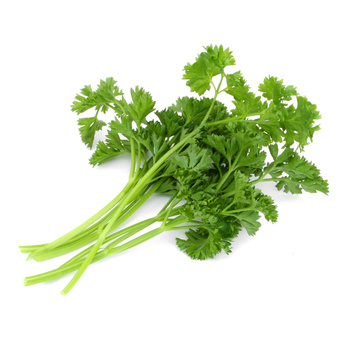Vitamin K (menaquinones)
 Vitamin K is lipid-soluble and was discovered by the Danish professor and Nobel Prize laureate Henrik Dam. There are three different forms with different functions. Vitamin K1 is primarily found in green plants, whereas vitamin K2 is produced by bacteria, and vitamin K3 is synthetic.
Vitamin K is lipid-soluble and was discovered by the Danish professor and Nobel Prize laureate Henrik Dam. There are three different forms with different functions. Vitamin K1 is primarily found in green plants, whereas vitamin K2 is produced by bacteria, and vitamin K3 is synthetic.
Functions and importance for (vitamins K1 and K2)
Vitamin K1 (phylloquinone)
- Blood coagulation via prothrombin, a substance that is produced in the liver
- To stop bleeding
Vitamin K2 (menaquinone)
- Calcium metabolism
- Formation of proteins that ensure normal calcium deposition in bone tissue
- Maintenance of bones (especially in combination with calcium, magnesium, and vitamin D)
Deficiency and poor utilisation may be caused by
Vitamin K deficiencies are very rare but may occur:
- In infants who have not been given supplements of the nutrient right after birth
- In prematurely born babies
- With an unbalanced diet
- With prolonged use of medical drugs like:
Antibiotics
Antacids
Acetylsalicylic acid preparations
Paraffin oil against constipation
Cholesterol-lowering drugs where bile acid sequestrants reduce the uptake of lipid-soluble vitamins
Weight loss products like Orlistat/Xenical that inhibit the uptake of fat and fat-soluble vitamins
Preparations with warfarin (Marevan) and dicoumarol that work as vitamin K antagonists against blood clots
Deficiency symptoms
Vitamin K1:
- Increased tendency towards bruising and bleeding
Vitamin K2:
- Increased tendency towards osteoporosis
- Increased tendency towards atherosclerosis and cardiovascular diseases
Sources
Vitamin K1: Mainly dark-green vegetables like parsley, spinach, broccoli, kale, and Brussels sprouts plus cauliflower, red cabbage, beans, avocado, and apples. Also found in butter, egg yolks, liver, and meat.
Vitamin K2: Is synthesised from vitamin K1 in the intestines and requires a healthy and well-functioning intestinal flora. Particularly large amounts of the nutrient are found in sauerkraut and the Japanese soy product called Natto where the vitamin is made from bacteria during fermentation.
Vitamin K content in micrograms per 100 grams
| Natto | 800-1,000 |
| Parsley | 790 |
| Spinach | 560 |
| Chickpeas | 264 |
| Broccoli | 260 |
| Eggs | 50 |
| Asparagus | 39 |
Recommended daily allowance (RDA)
Adults: 11 years of age and older: 75 micrograms
Children: 1-10 years of age: 30 micrograms
Infants: Breastmilk only contains small amounts of vitamin K and infants easily become deficient, as their intestinal flora is not fully developed. For that reason, vitamin K injections are administered to all newborn babies to prevent serious bleeding.
Increased need
- The above mentioned deficiency symptoms
- Newborn babies
Overdosing - side effects
No side effects or signs of poisoning have been observed - not even in studies where extremely high doses of 45,000 micrograms have been given over a period of several years.
What people must be careful with vitamin K and the use of supplements?
People who use medical drugs like Marevan that contain warfarin (a vitamin K antagonist) should make sure to get an evenly distributed supply of vitamin K from the diet. These individuals should not use vitamin K supplements or consume foods that contain large amounts of vitamin K, unless they consult a physician in advance. This is because large quantities of vitamin K may counteract the effect of Marevan and similar drugs.
Synthetic vitamin K3 (menadione)
The synthetic vitamin K3 (menadione) is biologically active and used in animal feed in several countries, including Denmark. In the United States vitamin K3 is not permitted.
- Created on .












 "After about one week of taking the Q10 supplement I could feel a huge difference," says 23-year old Alan Piccini, who has been suffering from extreme fatigue and muscle aches ever since he was a child.
"After about one week of taking the Q10 supplement I could feel a huge difference," says 23-year old Alan Piccini, who has been suffering from extreme fatigue and muscle aches ever since he was a child. “Taking capsules with co-enzyme Q10 has freed me of the severe side effects of my cholesterol lowering medicine,” Mrs Franken explains.
“Taking capsules with co-enzyme Q10 has freed me of the severe side effects of my cholesterol lowering medicine,” Mrs Franken explains.